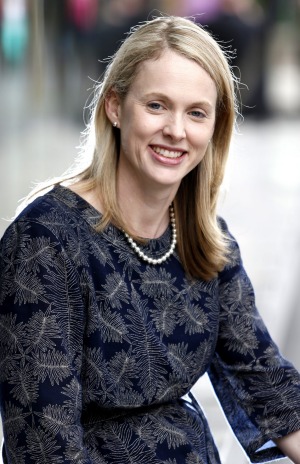
Radiation oncologist Dr Bronwyn King. Photo: Photo: Eddie Jim
Bronwyn King knows the lethal power of tobacco better than most.
As a young doctor, some of the first patients she cared for at Peter MacCallum Cancer Centre were cursed by lung cancer.
But while doing her best to help these people – fathers, mothers, grandparents she considered victims of the tobacco industry – the radiation oncologist had no idea she was also funding the global production of cigarettes.
It was only during a meeting with a representative of her superannuation fund in 2010 that she learnt some of her money was flowing to tobacco companies through the “default” option, rather than the “greenie” option that screened out tobacco, alcohol and mining company investments.
“I thought it was a very bad fit for me as a cancer doctor,” she said. “I had watched dozens of people die.”
Knowing many of her colleagues would be unhappy with the investment too, Dr King approached Health Super, the fund many hospital employees used at the time. Within a year, the fund, which later merged with First Super, had divested $200 million in tobacco due to her lobbying.
Four years on – and dozens of coffees and boardroom presentations later – Dr King has almost single handedly convinced 28 Australian super funds to divest at least $1.3 billion in tobacco companies.
Although there are 344 super funds in Australia, the 28 she has influenced are large enough to account for about $500 billion of the estimated $1.9 trillion industry.
Unable to rest on her laurels, Dr King, a specialist at Peter Mac and Epworth hospitals, is now “deeply engaged” with 30 funds and she is hoping there will be a cumulative effect in the industry here and overseas.
Having gained the attention of the World Health Organisation and the United Nations (both want to highlight her achievements over the next year to inspire others), Dr King believes her Tobacco-Free Investment Initiative is just beginning.
“There is so much more work to do … I’m hoping to connect with other health leaders and finance leaders in other countries to ask them to take another look and see if they will advance the conversation there,” she said.
Dr King is presenting her work at the World Cancer Congress in Melbourne this week.
